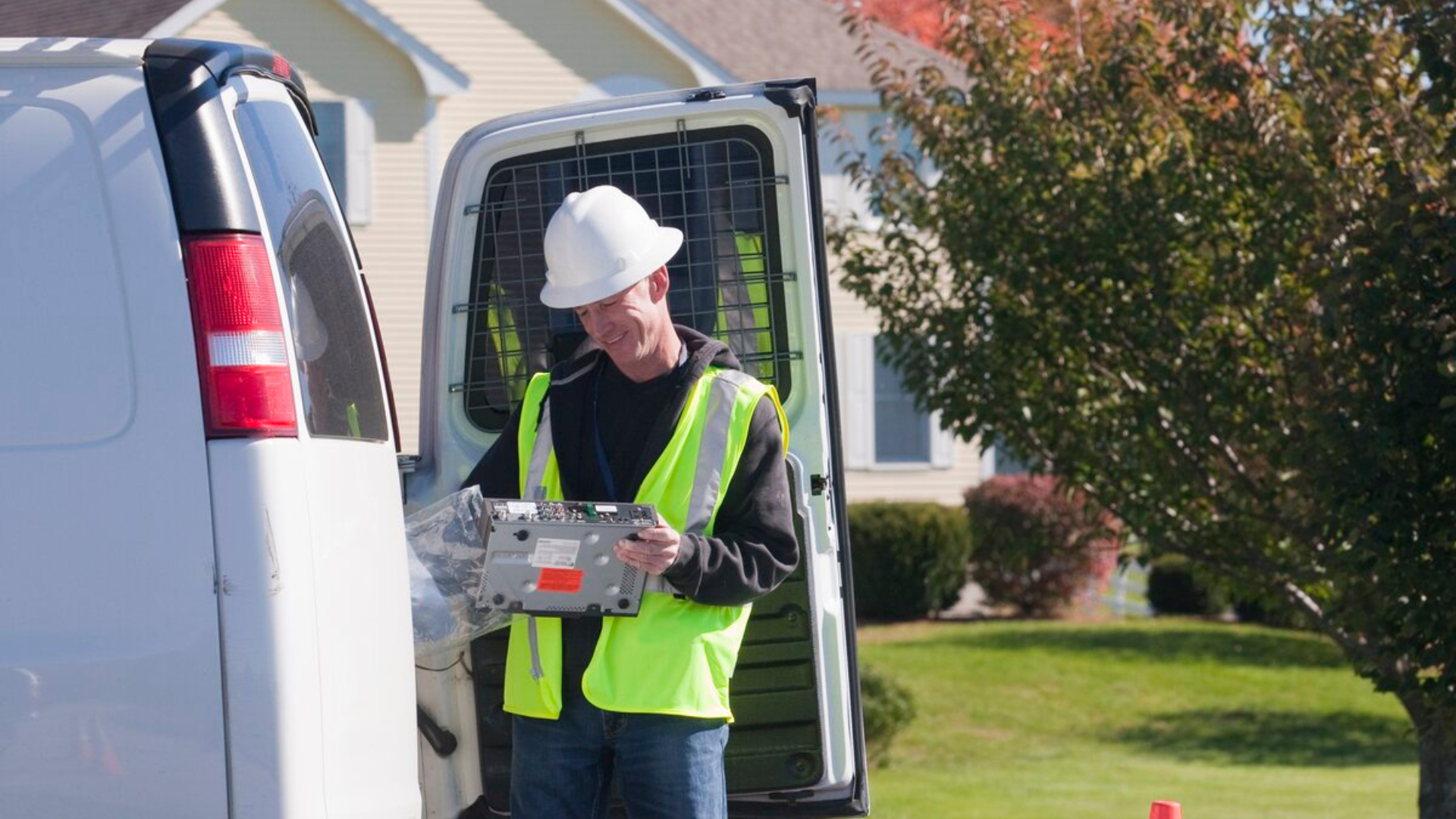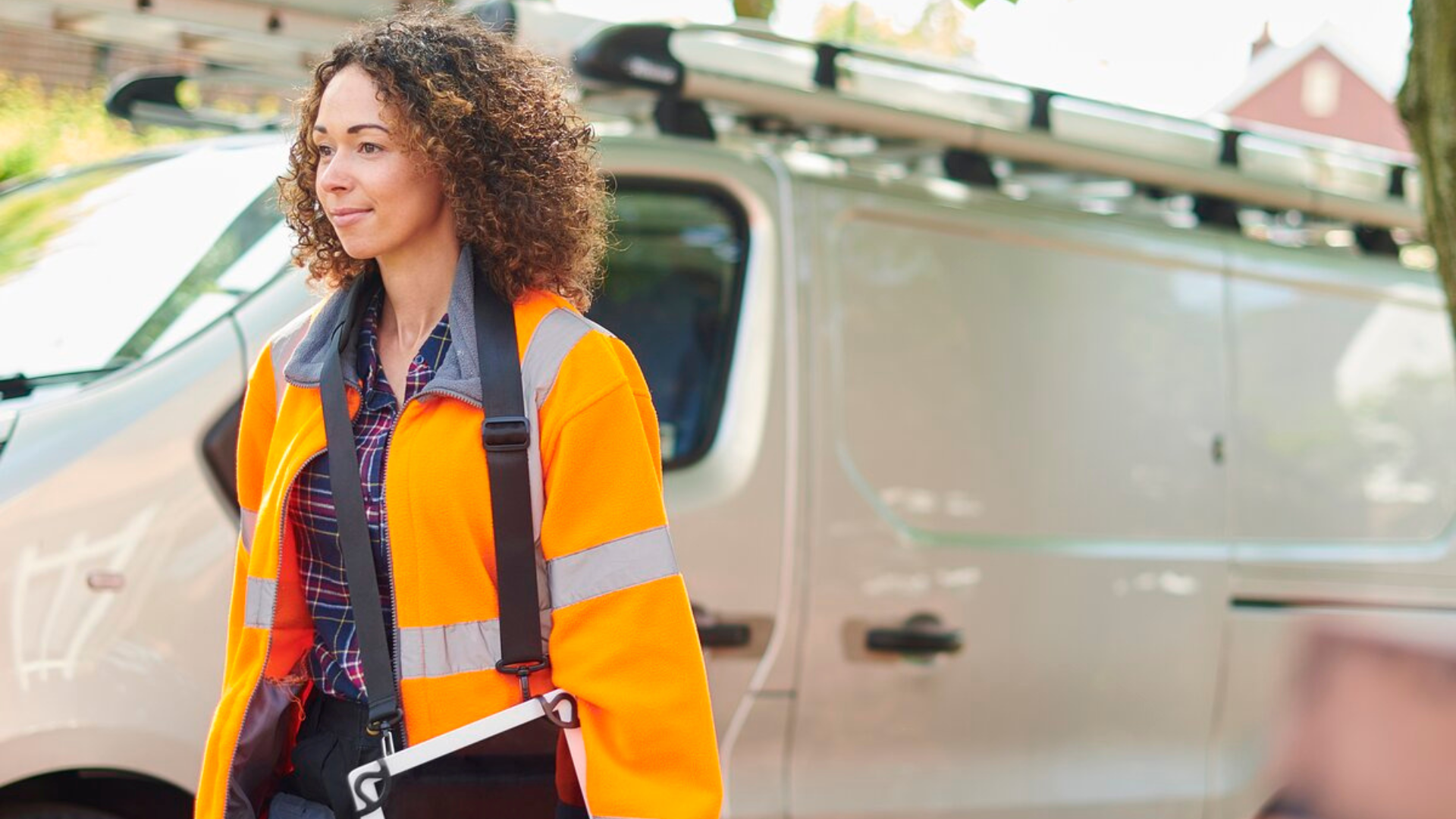What is fleet sustainability and why is it so important?
Learn about the importance of fleet sustainability. Find out how to green your fleet and track your carbon footprint with telematics, including for EVs.
By Geotab Team
Aug 27, 2024

The scientific community, together with governments and organisations worldwide have come together to acknowledge the need to take action against climate change. In 2019, the UN celebrated the 25th anniversary of the UN Framework Convention on Climate Change (UNFCCC), which is responsible for the Paris Agreement.
All 189 countries that participated in the Paris Agreement have established climate-specific goals to reduce their carbon footprint, with a target to reach net zero emissions by 2050. The Agreement aims to keep countries accountable and on-track to prevent a catastrophic rise in the Earth’s temperature over 2°C. But while these guidelines have made some strides, they have been met with lots of challenges as well.
Many corporations have set more stringent targets to reach net zero carbon emissions by 2040, signing the Climate Pledge.
The need for action is clear. The UN examined extreme weather events between 1997 and 2016, concluding that they caused 524,000 deaths globally, with damages totalling more than $3 trillion (about £2.19 trillion).
“What we need now takes all of us,” UN Climate Change Executive Secretary Patricia Espinosa said in her speech marking the 25th anniversary of UNFCCC. “...solutions to climate change don’t come from governments alone. They also come from businesses, investors, community organisations, private citizens and more.”
See also:
30 tips for a green fleet strategy
Creating a sustainable future with telematics
Get inspired by these sustainability leaders working to make a difference
How do you define fleet sustainability?
Fleet sustainability is a continual process of evaluating the environmental and social impacts of the fleet, identifying improvements, implementing change, and measuring success - then starting the process again.
Key strategies for fleet sustainability are:
- Vehicle telematics and GPS tracking
- Adoption of hybrid/electric vehicles and right-sizing
- Driver training for fuel efficiency
- Fuel management and use of alternative fuels
- Predictive maintenance
- Vehicle pooling or car sharing
- Considering alternative modes of transportation altogether
Why is fleet sustainability important?
Regardless of fleet size, creating a sustainable fleet programme is one of the best ways an organisation can reduce its environmental impact and help fight climate change.
In the UK, the transportation sector is the second largest emitter of climate change-causing greenhouse gases, surpassed only by energy supply.
These figures show the importance of fleet sustainability:
- In 2018, a quarter of UK greenhouse gas emissions came from transportation
- Transportation also ranks as one of the most polluting industries for emissions of fine particulates, carbon monoxide, and volatile compounds, which have been linked to air pollution that is causing a public health emergency.
- An average passenger vehicle emits 4.6 tonnes of CO2 per year and researchers at Stanford University calculated there to be a social cost of $220 (about £160) per tonne of CO2. Based on these figures, a 100-vehicle fleet would have a social cost of £73,600 per year.
Implementing fleet sustainability measures isn’t an altruistic action for an organisation to take — it also has a tremendous amount of benefits for fleets:
- Reducing the organisation’s carbon footprint through better route management and/or use of alternative-fuel vehicles with fewer to no emissions.
- Lowering long-term costs, such as spending less on fuel, oil, and even maintenance.
- Complying with any applicable emissions regulations.
Incentivise staff to participate in in sustainability programs
Some organisations, particularly public sector fleets, may even add one more strategy to green their fleets : Encouraging all staff members to practice a sustainability mindset in their personal lives. Incentives can be created to promote walking, biking or using public transportation to get to work. Organisations can use platforms like Liftshare to create their own branded car sharing site to help get staff signed up and sharing.
Education and awareness campaigns, sustainability committees, and special recognition such as with a VIP parking space, are some other ideas for motivating employees to go green.
Supporting sustainability goals with telematics
A fleet needs data to be able to create and act on a fleet sustainability plan.. This data needs to cover the entire fleet, in order to enable efficient decision-making. One of the key areas where telematics devices can add great value involves fuel consumption. And by focusing on fuel reduction, the benefits can ripple throughout the operation, from improved safety and a reduction in collision costs, to lower maintenance costs.
The Geotab open telematics platform, MyGeotab, and GO telematics devices retrieve important information from the vehicle on a quantitative scale, letting you monitor every aspect of the fleet. You can collect data on GPS location, idling time, dangerous driver behaviour, customer visits, and many other measurements. All this comes together to help a fleet work on inefficiencies and embrace new ideas, such as adopting electric vehicles (EVs).
Read about Geotab’s own environmental practices here.
See also: Increase sustainability with the Green Fleet Dashboard
Subscribe to the Geotab Blog
The Geotab Team write about company news.
Related posts

How integrated data can help fleets scale up their EVs
November 5, 2025
2 minute read


How to reduce the carbon footprint of your current vehicles
November 5, 2025
2 minute read

Practical strategies for bus fleets to cut fuel costs and carbon emissions
November 3, 2025
2 minute read

The need for unified EV data to maintain electric bus condition
November 3, 2025
2 minute read

How integrated data can help last mile fleets move towards 100% EV adoption
August 29, 2025
3 minute read